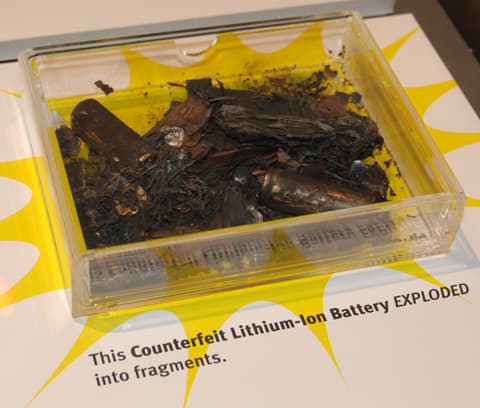A booming market for fake rechargeable digital camera batteries risks injuring ?millions? of consumers, warns Kodak which has launched a bid to ‘pull the plug’ on counterfeiters.
The move comes as the demand for handheld electronics devices soars – providing a fresh impetus for counterfeiters to insert fake lithium-ion batteries into legitimate sales outlets, explains the company.
?Counterfeit batteries can lead to poor product performance, damage to electronic devices and overheating that can create the risk of chemical leakage, burns and even fires,? according to the firm?s United States HQ.
Kodak points to figures supplied by the United States Customs and Border Protection, a body which reports that officials seized almost $10m worth of counterfeit consumer electronics products in the first half of last year – a ‘338%’ increase on the same period in 2006.
?Counterfeit batteries that find their way into electronics devices put millions of consumers at an unnecessary risk,? adds Eastman Kodak?s president and chief operating officer Philip Faraci.
Kodak plans to launch a counterfeit detection system called ?Traceless?, whereby a ?forensically undetectable? marker, placed on the genuine Kodak battery, allows the firm to quickly and easily distinguish it from a fake lithium-ion battery.
Already deployed in markets such as the cosmetics and pharmaceuticals industry, such markers can be placed into thermal transfer ribbons – a common method for printing barcode labels on electronics goods, according to Kodak.
Announced at the Consumer Electronics Show in Las Vegas the move is designed to send a clear message to counterfeiters that they should not try to replicate Kodak batteries.
The firm claims that the markers can only be detected using secure handheld Kodak readers.
Most Kodak lithium-ion batteries are made by Sanyo Electric Co which has welcomed the news.
Picture: Canon warned of similar risks to consumers, over ‘exploding’ fake rechargeable batteries, at last year’s PMA show in Las Vegas








